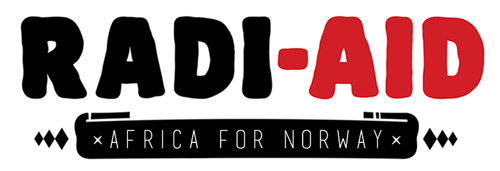The Student Savior
/In an interview I conducted with Chantel Daniels, Program Manager at Volunteer Mzansi Africa, she mentioned that one of the biggest misconceptions is that students believe that “they are coming to save us.”
This savior myth is allowing the students to believe they are the best hope for poor communities incapable of helping themselves, and this is substantiated throughout the experience. Anointed as saviors, students go in, spend a summer or a semester in this or that remote village and leave imagining it transformed, its problems of sanitation or potable water made bearable owing to their intervention. If the projects aren’t as visibly successful, the stark disparities are still guaranteed to heroicize; every student comes back achingly grateful for American largesse.
Their accrued stories of serving in primitive hospitals and sleeping in lightless villages will all feature centrally on essays to graduate school, invest their social media profiles with haloes of moral superiority.
Notably absent in this equation of fulfilment is the voice of the community that bears the cost and intrusion of the bumbling American student’s foray abroad. Study abroad programs, enthusiastically pitched by University administrators and educators alike, rarely if ever measure the impact arriving students have on communities or whether their much praised projects are actually successful in the long term. When study abroad programs are evaluated, they focus only on how or whether learning outcomes of the students are achieved, ignoring completely whether communities really need American students to dig wells or toilets.
This one-sidedness is crucial for myth maintenance and underscores the pretense that the American student, however unskilled or arrogant, is really saving the world.
No Shared Understanding
One of the most troubling consequences of this “Western savior” model deployed by study abroad programs is that it destroys the possibility of any meaningful dialogue across differences.
An August 2015 study by Calvert Jones published in International Studies Quarterly found that the percentages of “shared perception” or the “we feeling” were lower for students who had just returned from studying abroad when compared to those who had not yet left. Returning students were also more “nationalistic” and “patriotic” than before. The results are not surprising. The “Western savior” model of study abroad programs, which focuses only on students, can but produce clannish outcomes; nothing more than a collective cry of “thank God I don’t live here.”
Is Fair Trade Learning the Answer?
Inequalities of power and privilege are not limited to study abroad programs, nor does their existence suggest that global service learning can never yield meaningful dialogue across difference. In a paper entitled “Fair Trade Learning; Ethical Standards for community-engaged international volunteer tourism,” Dr. Eric Hartman of Kansas State University outlines some best practices that can save global service learning. They include dual-purpose programming (organizing programs with both student and community outcomes in mind and including community voice and direction in the planning process. A long term vision for sustainability and commitment would mean that students are prepared and oriented before, during and after the program, and community members are given a clear idea of what will be taking place. Other crucial dimensions include an assessment of economic and environment sustainability and budgetary transparency. For those who want to put the standards into action, Hartman has created an online platform at globalservicelearning.org that provides resources for students, educators and university administrators.
Hartman’s Fair Trade Learning Model is currently being deployed by a few organizations. One of the co-authors of the paper, Brandon Blache-Cohen is the Executive Director of Amizade Global Service Learning, a Pittsburgh-based organization that runs service-learning projects around the world. Amizade’s model puts hosts communities at the center of decision-making and places deliberate effort in ensuring that students understand the contexts in which they will be serving.
Particularly notable are its reciprocal programs where students from host communities come to live in the United States instead of just American students going abroad. Another iteration of “fair trade learning” in operation is OmPrakash Edge, an organization that pairs college students with community-based organizations around the world. Community organizations have to go through a screening process before being listed with OmPrakash. Once listed the organization itself decides whether or not they want to host the interested student volunteer.
To get students ready to go, OmPrakash provides web based orientation courses that directly tackle issues of privilege and context, as well as the inadequacy of good intentions.
The Way Forward
Study abroad trips form a large chunk of $173 billion youth travel industry; whether or not they’re learning anything other than gratitude at the good fortune of being born rich and American, students are going abroad and into communities that are often too poor, remote or beholden to whatever little they receive for hosting students to object.
If learning means truly understanding history, culture and context, it must go beyond the easy superiority of imagining the poor as stupid, and hence unable to dig a latrine or better their living conditions.
As it exists, the “Western savior” model of studying abroad functions largely as a means of reiterating old colonial paradigms that students of the West, despite being inexperienced and unskilled, are the saviors for all the rest.
Written by Rafia Zakaria
Rafia Zakaria is an author, attorney and human rights activist from
Pakistan, currently residing in the US. She is a columnist for DAWN
Pakistan and a regular contributor to Al Jazeera America.
The article is also published in SAIHs Radiator Report.





